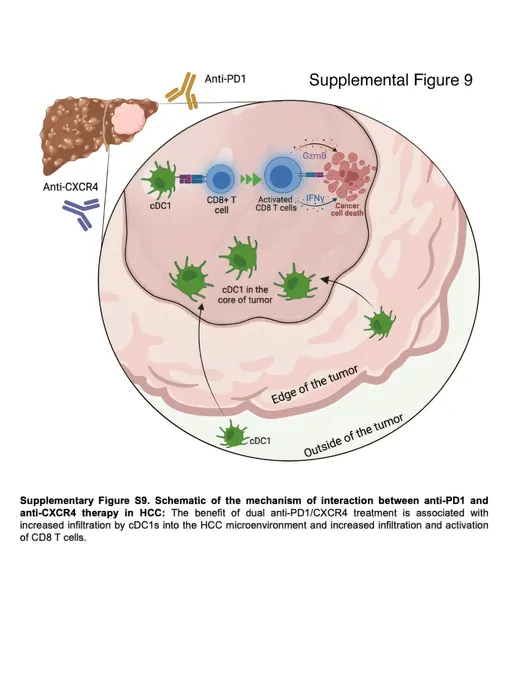
Revolutionizing Liver Cancer Treatment: The Breakthrough of Combined Immunotherapy
2024-12-16
Author: Jacques
Immunotherapy and Liver Cancer
Immunotherapy has dramatically transformed cancer treatment, but challenges remain, particularly in liver cancer management. A recent study published in *Cancer Immunology Research* reveals groundbreaking strategies that could pave the way for improved patient outcomes in hepatocellular carcinoma (HCC), the most prevalent form of liver cancer, which is now the fifth leading cause of cancer-related deaths in the United States, with numbers expected to rise alarmingly in the coming years.
Key Findings of the Study
Conducted by Dr. Dan G. Duda from Massachusetts General Hospital, this innovative research addresses a critical gap in liver cancer treatment: the scarcity of dendritic cells. These cells are essential for activating and directing the immune response against malignancies. The study focused on the combination blockade of the immune checkpoint PD1 and the CXCR4 receptor, a known factor that hinders the immune system's capacity to combat tumors.
While previous attempts to inhibit CXCR4 have faced challenges, this study leverages a more effective approach. Instead of using AMD3100, a small-molecule antagonist known for its short half-life, the researchers tested long-lasting antibodies. This method illuminates how the interplay between CXCL12 and CXCR4 signaling can be harnessed to alter the liver cancer microenvironment, enhancing therapeutic efficacy significantly.
The Impact of the Research
The results were nothing short of astonishing. The combination treatment transformed the 'cold' tumor microenvironment of liver cancer into a 'hot' one, where dendritic cells could thrive and activate cytotoxic T lymphocytes crucial for attacking cancer cells. Ultimately, this combination led to better tumor infiltration, increased T lymphocyte activation, and, most importantly, prolonged survival rates in mouse models.
This revelation offers hope not only for liver cancer patients but also provides a framework that could be applied to various other cancers where dendritic cells are lacking. Given the rising incidence of liver cancer – projected to become the third leading cause of cancer deaths by 2040 – this research has monumental implications for improving patient care.
Looking Ahead
With these promising findings, the next steps involve advancing this combination therapy to clinical trials in humans. Continued exploration of CXCR4’s role in the immune landscape of liver cancer could further enhance the effectiveness of current immunotherapies, making them viable options for more patients struggling with this aggressive disease.
This study serves as a rallying cry for the cancer research community: by understanding and manipulating the tumor microenvironment, we may be able to turn the tide against liver cancer and similar malignancies. Stay tuned for further updates as these exciting developments unfold!









 Brasil (PT)
Brasil (PT)
 Canada (EN)
Canada (EN)
 Chile (ES)
Chile (ES)
 España (ES)
España (ES)
 France (FR)
France (FR)
 Hong Kong (EN)
Hong Kong (EN)
 Italia (IT)
Italia (IT)
 日本 (JA)
日本 (JA)
 Magyarország (HU)
Magyarország (HU)
 Norge (NO)
Norge (NO)
 Polska (PL)
Polska (PL)
 Schweiz (DE)
Schweiz (DE)
 Singapore (EN)
Singapore (EN)
 Sverige (SV)
Sverige (SV)
 Suomi (FI)
Suomi (FI)
 Türkiye (TR)
Türkiye (TR)